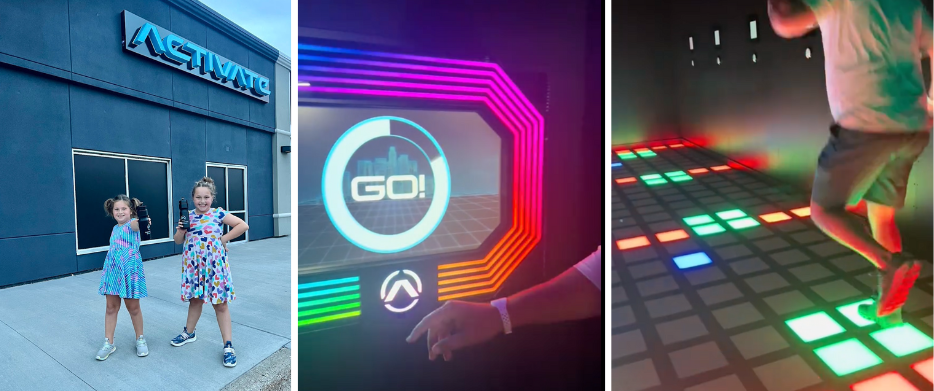Even before COVID burst on the scene and drove many schools into online versions of themselves, remote teaching had been...
Even before COVID burst on the scene and drove many schools into online versions of themselves, remote teaching had been gaining popularity. Driven by reasons like flexibility, personal needs, and accessibility, the positives associated with online schooling were convincing many to take a second look. The Ask a Tech Teacher team has done that with this article on–
Is Online Schooling a Good Fit for Teens?
Online education has become more than just an alternative. It’s a mainstream option for students looking for flexibility, independence, and a more personalized learning environment. For teenagers, high school is a critical time of development both academically and socially. As more families explore options like online high school in Washington state, it’s worth considering whether virtual schooling supports or hinders a teenager’s growth.
Flexibility That Works for Today’s Teenagers
Teens live busy, often complicated lives. Between part-time jobs, family responsibilities, athletics, and mental health needs, a traditional 8 a.m. to 3 p.m. school day doesn’t always work for everyone. Online high school provides a level of flexibility that allows students to work at their own pace, on their own schedule.
This flexibility can be especially valuable for students who are pursuing extracurricular passions like music or competitive sports, managing chronic illnesses, or recovering from academic burnout. In an online setting, they can shape their day around what works best for them without falling behind.
Learning at Their Own Pace
One of the most significant advantages of virtual learning is the ability to tailor education to a student’s specific pace and style. Some students grasp algebra quickly but take longer with literature. Others need extra time with science concepts or benefit from visual and interactive lessons.
Programs like eLearning often offer a mix of live instruction, recorded lessons, and one-on-one teacher support. This structure allows teens to move faster through the subjects they’ve mastered while dedicating more time to areas they find challenging. That level of customization can make learning less stressful and more effective.
Encouraging Independence and Accountability
High school students in online programs often develop strong self-discipline. Since they’re responsible for managing their time and workload, they gain experience in organization, goal setting, and personal accountability. Skills that are essential in college and the workforce.
Virtual schooling encourages students to take ownership of their education. While guidance from teachers and parents is still important, the learning process becomes more self-directed. Many students thrive in this environment, especially those who are motivated and enjoy working independently.
Social Growth Takes a Different Shape
Social development is a crucial part of the teenage years. One of the biggest concerns with online high school is the potential for isolation. Traditional schools offer constant interaction with peers, which helps students build communication skills, form friendships, and learn to navigate group dynamics.
Online high schools do try to bridge this gap through virtual clubs, collaborative projects, and even in-person meetups or field trips when possible. But these social experiences are often more structured and less spontaneous than what teens encounter in a physical school setting. For some students, that’s perfectly fine. Others may need to actively seek out social opportunities through sports, volunteer work, or community programs.
Access and Support Matter
Not every home environment is ideal for online learning. Teens need access to a reliable internet connection, a quiet and comfortable space to study, and a computer or device that can handle educational platforms. They also need a support system. Whether it’s a parent, guardian, or another adult, to help them stay motivated and organized, especially in the beginning.
It’s also worth noting that not all students are a natural fit for remote learning. Some may struggle without the structure of a traditional school day or miss the energy of in-person classes. That’s why having access to live teacher support, guidance counseling, and regular check-ins, like those offered through virtual schools backed by organizations such as Virtual Prep Academy, is important for keeping students on track.
Making the Right Decision
Choosing whether online high school is right for your teen comes down to knowing their needs, strengths, and challenges. If they’re self-motivated, need a flexible schedule, and are comfortable with technology, they may find virtual learning empowering and effective.
But it’s also okay if the model doesn’t fit. What matters most is aligning your teen’s education with their goals and personality. With thoughtful planning and the right support, online high school can be more than just a backup plan. It can be a smart and successful path forward.
Here’s the sign-up link if the image above doesn’t work:
https://forms.aweber.com/form/07/1910174607.htm
“The content presented in this blog are the result of creative imagination and not intended for use, reproduction, or incorporation into any artificial intelligence training or machine learning systems without prior written consent from the author.”
Jacqui Murray has been teaching K-18 technology for 30 years. She is the editor/author of over a hundred tech ed resources including a K-12 technology curriculum, K-8 keyboard curriculum, K-8 Digital Citizenship curriculum. She is an adjunct professor in tech ed, Master Teacher, webmaster for four blogs, freelance journalist on tech ed topics, contributor to NEA Today, and author of the tech thrillers, To Hunt a Sub and Twenty-four Days. You can find her resources at Structured Learning.















